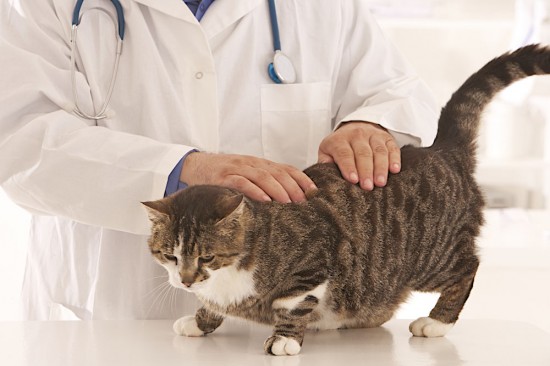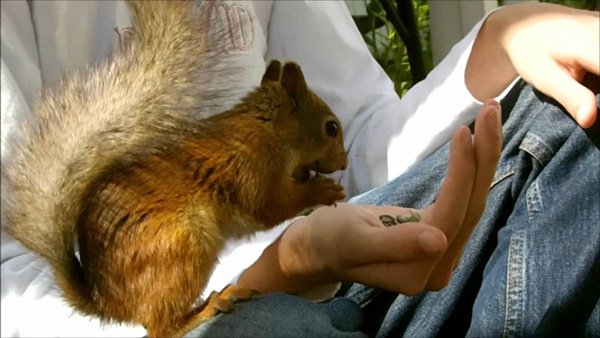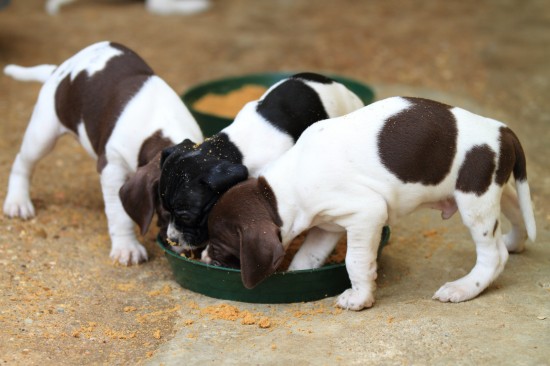
Puppies are born with very few antibodies against disease. The
mother will first produce colostrum. Colostrum is the first milk
and is nature’s way of providing newborn puppies with their
first doses of antibodies to produce against disease. Puppies’
bodies will not produce their own antibodies to disease until
they are about six weeks old. Puppies must have at least one
feeding of colostrum in their first 24 hours of life. By keeping
the mother updated on vaccinations, she has a good chance of
passing on her immunity to newborn puppies that helps to guard
them against disease.
Access to colostrum is only good for the puppies in the first 24
hours of life. Access to the mother’s colostrum in the first 24
hours of life is crucial.
The immunity to disease passed through the mother’s colostrum
called “maternal immunity” usually lasts for several weeks in
the puppy’s system. It gradually fades as the puppy’s own immune
system begins developing and becomes capable of producing its
own antibodies at around 14 to 16 weeks of age. The exact time
of maternal immunity’s fading is very variable, but it generally
occurs between 6 and 16 weeks. The goal of vaccination programs
is to cover any gap in immunity by starting vaccines immediately
after the maternal protection fades and when the puppy’s body is
capable of producing its own antibodies.
Vaccines are given to puppies several times to cover this gap.
When the maternal immunoglobulins fade and leave the puppy
without protection from disease, vaccines given at this time
will prompt the puppy’s maturing immune system to produce its
own protective antibodies against disease. To be sure the series
of vaccines given your puppy provides the immunity it needs, you
can ask your vet for a Titer Test.
Do not vaccinate a pregnant shih tzu. You must do so before she
is pregnant on a yearly basis.
 All About Cat Only Veterinary Practices
All About Cat Only Veterinary Practices
 Need not be Expensive, but Have to be Protective
Need not be Expensive, but Have to be Protective
 Guidelines To Feeding Your Puppy
Guidelines To Feeding Your Puppy
 Six Big Mistakes Owners Make That Lead To Unhappy Dogs
Six Big Mistakes Owners Make That Lead To Unhappy Dogs
 Use Equine Ulcer Supplements To Save Your Horse From Colic Pain
Use Equine Ulcer Supplements To Save Your Horse From Colic Pain
 Problem Solving The Behaviour Of A Dog That Urinates Inside After Going Out
Problem Solving The Behaviour Of A Dog That Urinates Inside After Going Out
 Is A Burmilla The Right Cat For You?
Is A Burmilla The
Is A Burmilla The Right Cat For You?
Is A Burmilla The
 Caring For Your Cat After Theyve Been Neutered
Caring For Your C
Caring For Your Cat After Theyve Been Neutered
Caring For Your C
 Few reasons for why are your pets getting affected by Fleas and Ticks?
How did your dog get these fleas and ticks?
Generally your
Few reasons for why are your pets getting affected by Fleas and Ticks?
How did your dog get these fleas and ticks?
Generally your
 Why And When Do You Need Pet Sitting Services?
Why And When Do You Need Pet Sitting Services?
Why And When Do You Need Pet Sitting Services?
Why And When Do You Need Pet Sitting Services?
 Utilizing a Greenhouse as an Animal Sanctuary
Utilizing a Greenhouse as an Animal Sanctuary
Utilizing a Greenhouse as an Animal Sanctuary
Utilizing a Greenhouse as an Animal Sanctuary
Copyright © 2005-2016 Pet Information All Rights Reserved
Contact us: www162date@outlook.com